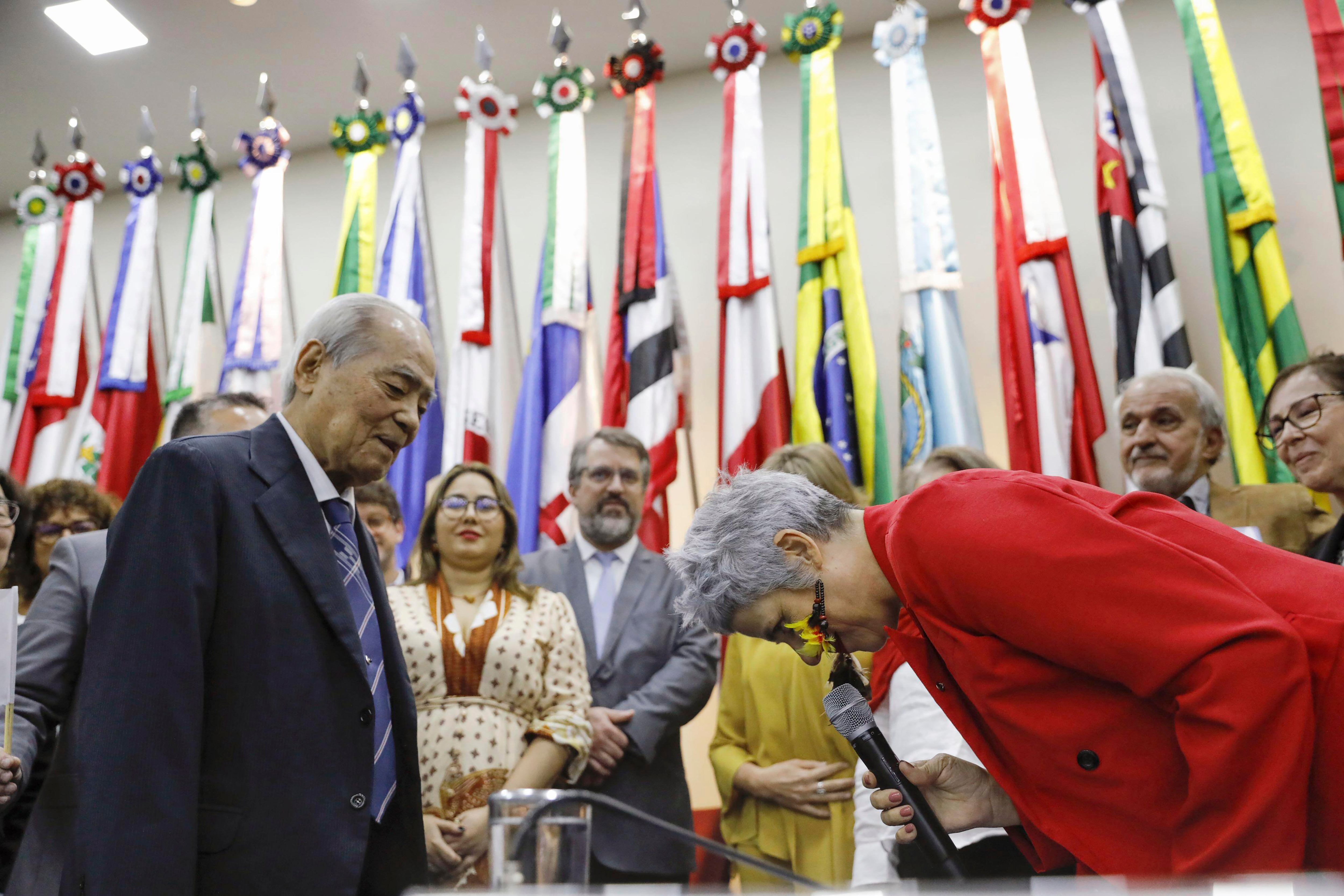Brazil apologizes for post-WWII persecution of Japanese immigrants
The Brazilian government has apologized to the Japanese community for human rights violations in the persecution and internment of immigrants in the years after World War II

The Brazilian government on Thursday apologized for human rights violations in the persecution and internment of Japanese immigrants in the years after World War II.
“I want to apologize on behalf of the Brazilian state for the persecution your ancestors suffered, for all the barbarities, atrocities, cruelties, tortures, prejudice, ignorance, xenophobia and racism,” said Eneá de Stutz e Almeida, president of the Amnesty Commission, an advisory board of Brazil’s Ministry of Human Rights that analyzes amnesty and reparation requests to victims of political persecution in the country.
The board approved the apology plea in a session in Brasilia attended by members of the Brazilian government and prominent members of the Japanese community. Flags of both countries were displayed on the table where the speakers sat.
A report by the Amnesty Commission acknowledged that 172 immigrants were sent to a concentration camp off the coast of São Paulo, where they were mistreated and tortured from 1946 to 1948.
"The documents indisputably demonstrate the political persecution and justify the declaration of political amnesty for the Japanese community and their descendants,” said the commission's rapporteur, Vanda Davi Fernandes de Oliveira.
The reparation request was filed in 2015 by the Okinawa Kenjin of Brazil Association, which stated that after the outbreak of World War II, members of the Japanese community were mistreated and discriminated against.
Brazil joined the Allies in 1942 and cut diplomatic relations with Japan, after which the Brazilian government confiscated Japanese-owned properties and immigrants were not allowed to gather or speak Japanese publicly.
Mario Jun Okuhara, who documented the persecution and supported the complaint, said his ancestors were imprisoned, tortured and accused of being spies and saboteurs.
“They were not at war; they were struggling to survive, seeking a place in the sun, and educating their Brazilian-born children,” Okuhara said Thursday. “Japanese immigrants shouldn't be held responsible for the errors of their government during the war. They were civilians working in agriculture and other sectors, fully integrated into Brazilian society.”
Brazil is home to the world’s largest Japanese community outside Japan, with over 2.7 million Japanese citizens and their descendants. The first ships from the Asian country arrived in Brazil in 1908, and immigration peaked between World War I and II.
Okuhara said the ceremony represented a moment to honor their ancestors and bring some emotional comfort to the Japanese community. “We can't erase the atrocities committed against our parents and grandparents, but we can learn from these sad episodes and prevent them from happening again to anyone, regardless of their origin or ethnicity,” he said.
___
Follow AP’s coverage of Latin America and the Caribbean at https://apnews.com/hub/latin-america
Bookmark popover
Removed from bookmarks